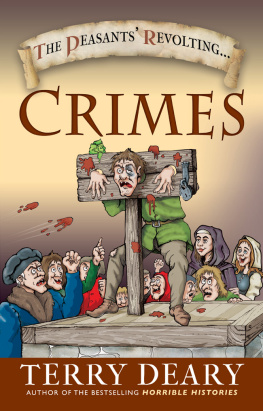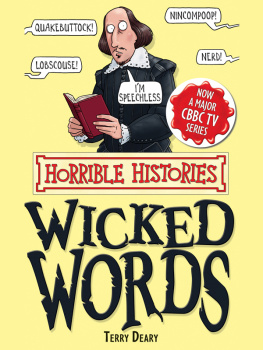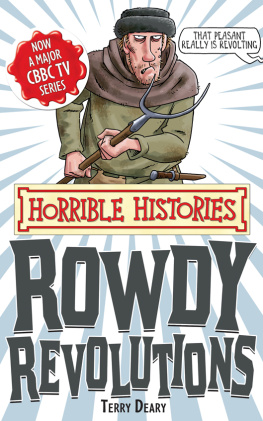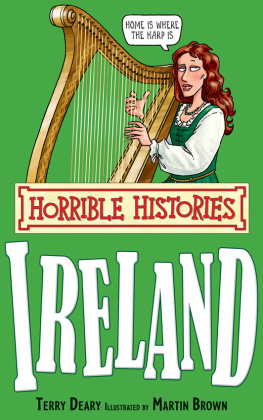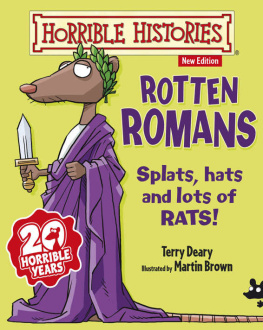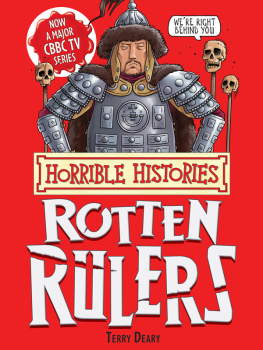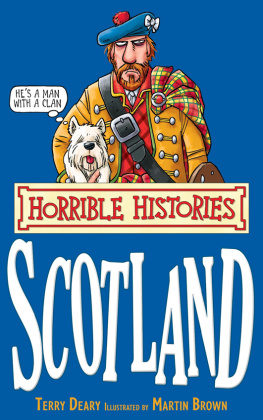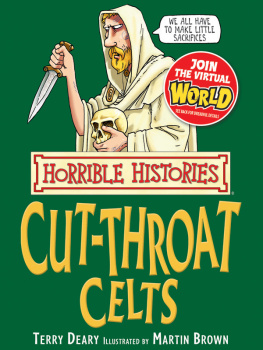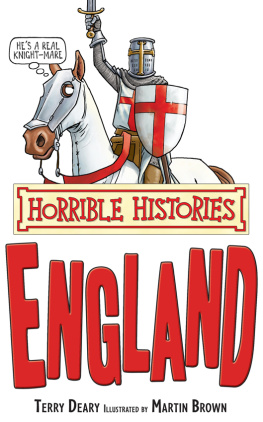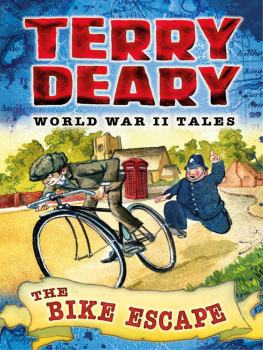Pagebreaks of the print version

The Peasants Revolting: Crimes
This book is dedicated to Mr and Mrs Peasant, the forgotten and abused (but unvanquished) heroes of history
The Peasants Revolting: Crimes
A disrespectful history of the criminal acts committed by the underclasses of Britain
Terry Deary
First published in Great Britain in 2019 by
Pen & Sword History
An imprint of
Pen & Sword Books Ltd
Yorkshire Philadelphia
Copyright Terry Deary 2019
ISBN 978 1 52674 557 6
ePUB ISBN 978 1 52674 558 3
Mobi ISBN 978 1 52674 559 0
The right of Terry Deary to be identified as Author of this work has been asserted by him in accordance with the Copyright, Designs and Patents Act 1988.
A CIP catalogue record for this book is available from the British Library.
All rights reserved. No part of this book may be reproduced or transmitted in any form or by any means, electronic or mechanical including photocopying, recording or by any information storage and retrieval system, without permission from the Publisher in writing.
Pen & Sword Books Limited incorporates the imprints of Atlas, Archaeology, Aviation, Discovery, Family History, Fiction, History, Maritime, Military, Military Classics, Politics, Select, Transport, True Crime, Air World, Frontline Publishing, Leo Cooper, Remember When, Seaforth Publishing, The Praetorian Press, Wharncliffe Local History, Wharncliffe Transport, Wharncliffe True Crime and White Owl.
For a complete list of Pen & Sword titles please contact
PEN & SWORD BOOKS LIMITED
47 Church Street, Barnsley, South Yorkshire, S70 2AS, England
E-mail:
Website: www.pen-and-sword.co.uk
Or
PEN AND SWORD BOOKS
1950 Lawrence Rd, Havertown, PA 19083, USA
E-mail:
Website: www.penandswordbooks.com
Law grinds the poor, and rich men rule the law.
Oliver Goldsmith (1728 1774), Irish novelist, playwright and poet
It is the duty of righteous men to make war on all undeserved privilege, but one must not forget that this is a war without end.
Primo Levi (1919 1987) Italian writer, and Holocaust survivor
The criminal is with us throughout the ages. He is with us still, though in much reduced numbers, for the farther we go in history the more criminals we find.
Bishop Fraser, Professor of Mediaeval and Ecclesiastical History, University of Manchester lecture, 1919
Introduction
When beggars die, there are no comets seen; The heavens themselves blaze forth the death of princes.
William Shakespeare (1564 1616), Julius Caesar
Will Shakespeare. Great writer, dodgy historian. And, lets be honest, a bit of a snob. A lot of princely corpses litter his stages by the end of his plays and a few princessly ones too.
But no comets for dead commoners. Great crimes for the lords and ladies but minor crimes are left to the lower classes. The peasants.
PEASANT: A poor smallholder or agricultural labourer of low social status.
(Informal) An ignorant, rude, or unsophisticated person.
Dictionary
Autolycus, in A Winters Tale , is a con artist who wanders around the Bohemian countryside taking advantage of any mug he happens to come across. He is also a comical character. Autolycus is one of the masterless men of Tudor England the impoverished and homeless who wandered the countryside. Many pretended to be disabled or mentally ill, so they could beg for food and cash.
A peasant-criminal. WHY did they do it? Shakespeare the sociologist may have been saying it was due to the increasing enclosure of land in the countryside. As land was closed off for grazing livestock, there was less land for communal farming purposes. That left peasants, like Autolycus, no means of supporting themselves and/or their families.
Vile violence
Shakespeare was an entertainer. His audiences demanded dramatic crimes and he wrote them by the bucketful crimes mostly committed by the upper classes. Maybe audiences were looking for a better class of crime?
Titus Andronicus begins with state-sanctioned execution, and becomes increasingly violent with rape and mutilation, and climaxes in cannibalism heads and hands are cut off, on stage. Sons
baked in a pie
Whereof their mother has daintily fed.
A young Roman noblewoman, Lavinia, has her tongue cut out to stop her blabbing about her rape, and allows the Elizabethan audiences to enjoy the revolting poetry like Lavinias uncle, Marcus:
Alas, a crimson river of warm blood,
Like to a bubbling fountain stirred with wind,
Doth rise and fall between they rosed lips,
Coming and going with thy honey breath.
She has her hands cut off too, and that provides a bit of a laugh for her rapists and mutilators who mock her.
| CHIRON: | Go home, call for sweet water, wash thy hands. |
| DEMETRIUS: | She hath no tongue to call, nor hands to wash, |
| And so lets leave her to her silent walks. |
| CHIRON: | And twere my cause, I should hang myself. |
| DEMETRIUS: | If thou hadst hands to help thee knit the cord |
And like any good morality tale, the criminals make a big mistake. They forget that Lavinia can write. Lavinia holds a stick in her mouth and spells out the names of the rapists, Demetrius and Chiron.
At a dinner banquet, Lavinia is killed by her loving dad, Titus. His motive is not one youd find in many whodunits. He says he wants her shame to die along with his sorrow for her.
In other words, hes doing the lass a favour while assuaging his own sorrow? Thats all right then.
Peasant pleasure
The majority of Shakespeares audience would be the groundlings the lower classes who stood there for a couple of hours to be entertained by tales of crime and cruelty. He explored motivation among his murderers:
| Hamlet | Revenge |
| Lady Macbeth | Ambition |
| Othello | Jealousy |
| Brutus | Power |
and so on. These flawed heroes were all upper-class lords and ladies, and their crimes were enjoyed by the underclasses. Since Ancient Greek days, when Oedipus killed his dad and married his mum, our fictional crime has been dominated by the noble nutters and high-class criminals.
Charles Dickens redressed the balance with a look at low-life London crime that shows us the poor have as much criminal excitement as the rich:
Stop thief. Stop thief. There is a human passion for hunting something deeply implanted in the human breast. One wretched, breathless child, panting with exhaustion, terror in his looks, agony in his eye, large drops of perspiration streaming down his face, strains every nerve to make head upon his pursuers; and as they follow on his track, and gain upon him every instant, they hail his decreasing strength with still louder shouts, and whoop and scream with joy Stop thief. Ay, stop him for Gods sake, were it only in mercy.
Charles Dickens (1818 1870), British writer and social critic, Oliver Twist
Read Agatha Christie (or any of her Golden Age contemporaries) youd be convinced that the elite eliminators would wipe out the genteel within a generation. When the posh werent killing their refined friends then they were coming to sticky ends themselves often on the gallows. Yes, there are a few working-class victims, but they are often there for comic effect. A servant died in an undignified way

